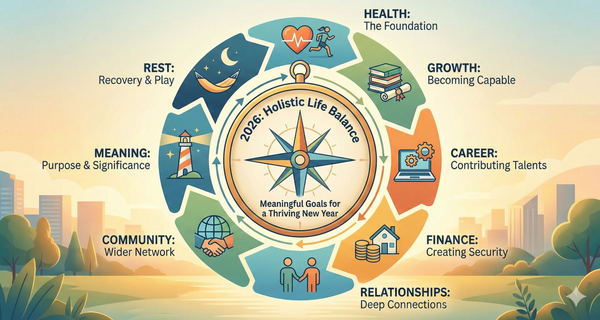Honest Conversations with Parents

The Foundation of Family Communication
In the intricate tapestry of family life, communication is the thread that holds everything together. Building honest communication with parents not only fosters stronger family bonds but also cultivates a foundation of mutual respect. While the path to open dialogue can present challenges, the rewards are simply priceless. Parents and children often navigate complex dynamics, and honest conversations are pivotal to understanding and respect. The prospect may seem daunting, but the potential for connection, healing, and growth makes it worthwhile. At any age, the ability to talk with parents openly is crucial. Family communication is the basis of a harmonious household, and it goes beyond mere words. It's about empathy, understanding, and the recognition of each family member's individuality. Open dialogue allows family members to express themselves without fear, fostering an environment where ideas and feelings can be shared freely. This kind of communication builds a strong framework where mutual respect can flourish. It empowers individuals to feel heard and valued, which is essential for healthy family relationships.
Why It's Hard to Talk and Why It Matters
Despite its importance, talking with parents can often be fraught with difficulty. Various factors such as generational gaps, differing perspectives, or emotional baggage can make communication feel like a herculean task. These challenges can cause misunderstandings and foster frustration. However, addressing these hurdles is vital. Open communication bridges gaps, clears up misconceptions, and strengthens familial bonds. It's crucial for resolving conflicts, understanding differing viewpoints, and ultimately, for family members to coexist peacefully.
Shifting from Child to Adult in Conversation
The transition from child to adult in family discussions signifies a pivotal change in the dynamic. As children grow, their need to express complexity in thought and emotion shifts, necessitating an adaptation in communication style. This requires parents to adjust their perception, treating their children as equals capable of contributing meaningful dialogue. While this shift can be difficult, it is instrumental in building relationships based on equality and respect, paving the way for more profound and productive conversations.
Preparing for a Respectful Discussion
Timing plays a critical role in the effectiveness of any conversation. Choosing the right moment can determine whether a discussion is productive or dismissive. Ideally, conversations should occur when both parties are calm and open to dialogue, free from distractions or stressors. It’s crucial to gauge a parent’s mood and pick a moment that signals readiness to listen and engage.
Know Your Goal: What Do You Want to Achieve?
Going into a conversation with clear objectives can significantly influence the outcome. Determine what you hope to achieve from the discussion, whether it’s clearing up a misunderstanding, seeking advice, or expressing a personal sentiment. By defining your goals, you provide direction and purpose, ensuring that the conversation stays on track and remains focused.
Gathering Your Thoughts and Sticking to the Point
Prior to engaging in dialogue, take time to gather your thoughts. This could involve jotting down key points or reflecting on what you want to say. During the conversation, strive to articulate your thoughts clearly and concisely, sticking to the point to avoid sidetracking. This approach minimizes confusion and helps maintain a constructive dialogue.
Techniques for a Successful Conversation
The Power of "I" Statements
Mastering the use of "I" statements is a powerful tool in family communication. By expressing feelings from a personal standpoint, such as "I feel" or "I believe," you minimize blame and defensiveness, apening the door to more empathetic listening. This technique promotes understanding and fosters a non-confrontational atmosphere conducive to problem-solving.
Active Listening: It's a Two-Way Street
Effective communication is inherently a two-way street. Active listening involves attentively understanding the speaker’s words, processing them, and responding thoughtfully. Showing genuine interest and acknowledging what the other person is saying signifies respect and builds empathy, laying the groundwork for a more reciprocal conversation.
Staying Calm and Managing Emotions
Emotions are often heightened during significant discussions. Staying calm and managing emotional responses are crucial for maintaining a productive conversation. Taking deep breaths, pausing before reacting, and reminding yourself of the conversation's goals can help prevent emotions from overshadowing the dialogue.
Navigating Disagreements and Setting Boundaries
It's Okay to Disagree: Finding Common Ground
Disagreements are natural in any relationship and can be handled with grace by focusing on finding common ground. Both parties should strive for understanding, even if opinions differ. Compromise and collaboration foster environments where diverse perspectives are valued, promoting a sense of teamwork and mutual respect.
Setting Healthy Boundaries with Love and Respect
Establishing boundaries is pivotal in maintaining respect within family conversations. Boundaries communicate personal comfort levels and help manage expectations. When set with love and respect, they contribute to healthier relationships by ensuring all parties feel safe and respected, ultimately reinforcing the importance of individuality and mutual understanding.
Conclusion
In conclusion, engaging in honest conversations with parents is a journey that requires dedication, empathy, and patience. It's an ongoing process that, when nurtured, enriches family relationships and promotes a culture of respect and open communication. By implementing these strategies, families can work towards a harmonious dynamic where every member feels valued and heard. The journey of building better communication is not a one-time fix but a continuous effort. Start today by taking one small step toward having a more honest conversation with your parents, for the reward lies in the strengthened bonds and deeper understanding that follow.




